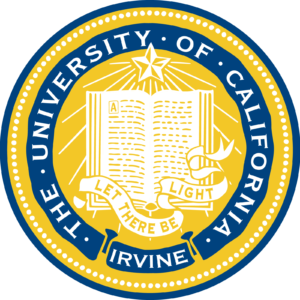No one would call the University of California at Irvine a conservative school. In fact, few would likely even deem it “moderate.” Still, it is regarded as a strong school academically, with a high ranking from U.S. News and World Report, and for the most part, the school is able to keep its politics from influencing the quality of education it offers. However, its reaction to Donald Trump’s election shows that this might be changing, allowing politics to influence the content of even basic writing courses.
Despite naming a UC Irvine economist one of his advisers during the campaign, Trump is largely unpopular with students and faculty. After the results came in, students at Irvine, like their compatriots at campuses across the country, responded emotionally. On the night of the election, some 300 started a Dump Trump protest march ending with an open mic and speakers. Another group sponsored a “group cry meet and greet” at the school’s Langson Library, asking people to invite their friends and to “Bring all your bernie shirts ;( (sic).” That event was later disrupted by unrelated reports of fire and moved outside.
While dissatisfaction with the results is not entirely surprising, what is more concerning is that instructors are discussing means of changing course content because of Trump’s win. On Wednesday, instructors from the university’s composition department met to discuss ways to shift course curricula to help prepare students for life under Trump.
In an email sent earlier this week and shared with InsideSources, a course administrator asked graduate teaching assistants for the writing courses to gather for a meeting “wherein we could discuss ways to use the various composition curricula to help prepare our students for life under an avowed white supremacist presidential administration.”
To help start discussion, the administrator proposed “presenting the following ‘Trump Syllabus’ at the meeting, and we can go from there.” (The Trump syllabus is a mock syllabus of books and readings assembled by historians N. D. B. Connolly and Keisha N. Blain as an example of a course that would “address the critical subjects of racism, sexism, and xenophobia on which Trump has built his candidacy.“)
By discussing “ways to teach the rhetorical triangle politically,” the department hoped to coordinate ways in which instructors teaching different sections could inspire their students “to think critically about racism and public speech.”
InsideSources does not have information about what the meeting covered that was not mentioned in the earlier email.
The composition courses described vary slightly in topic from quarter to quarter, but are intended to serve as the students’ writing requirements for a liberal arts or humanities degree. The faculty meeting will look at ways to shift the focus of the coursework from craft of writing to writing politically.
This shift from a focus on the mechanics of composition to the politics of rhetoric threatens to take course time away from writing itself. And any changes will come on top of increases in writing class sizes that are planned to start with the winter 2017 quarter. Classes will then shift from 19 students per section to 23.
The larger course sizes come after the Los Angeles Times published a story in July, 2015 revealing that schools in the UC system, including Irvine, increased their acceptance rate for international students at the expense of students from the state of California. While competition was fiercest for seats at the flagship campuses of UC Berkley and UCLA, it also impacted smaller schools, such as Irvine, San Diego, and Davis.
The Times quoted Irvine spokeswoman Cathy Lawhon, who explained that while there is room on campus for additional students, state funding was insufficient to cover the costs of educating native-Californians, who pay lower rates and fees than international students.
“Even if we took no more out-of-state and international students, we would not be able to take more Californians,” she said.
The news caused an outcry from parents, legislators, and taxpayers, who were unhappy with the thought that their tax dollars were not going to educate the students of the state. Furthermore, the revelation put the university’s practices at odds with its mission statement, which says it is “committed to the highest ethical standards” in furthering its mission of teaching, research, and public service. The school specifically recognizes that “we hold the University in trust for the people of the State of California.”
In response to the public disapproval, the university system amended its policy, and this spring highlighted an increase in admissions offers to California students of “nearly 15 percent over last year.” The increased course sizes however suggest that these admissions may have come on top of high numbers of international students.
At least in the composition department, this may be the case. However, the increased class sizes mean that students have less access to instructors in office hours and during class time, and instructors have less time to provide critique and individual feedback for student papers. Meanwhile, course instructors, many of them graduate students, are unhappy about the increased workload without additional remuneration.
Given these educational challenges, attempts to add additional material, such as a discussion of political rhetoric, to the courses may decrease the amount of attention instructors can give to the craft of writing itself.

